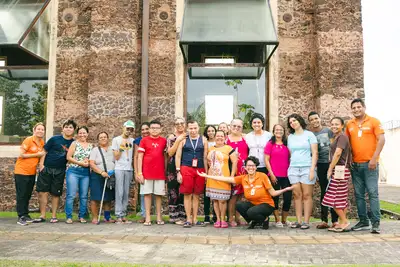State guarantees multiprofessional care for patients with cleft lip and palate
The government of Pará has performed over a thousand surgeries in almost a year and a half
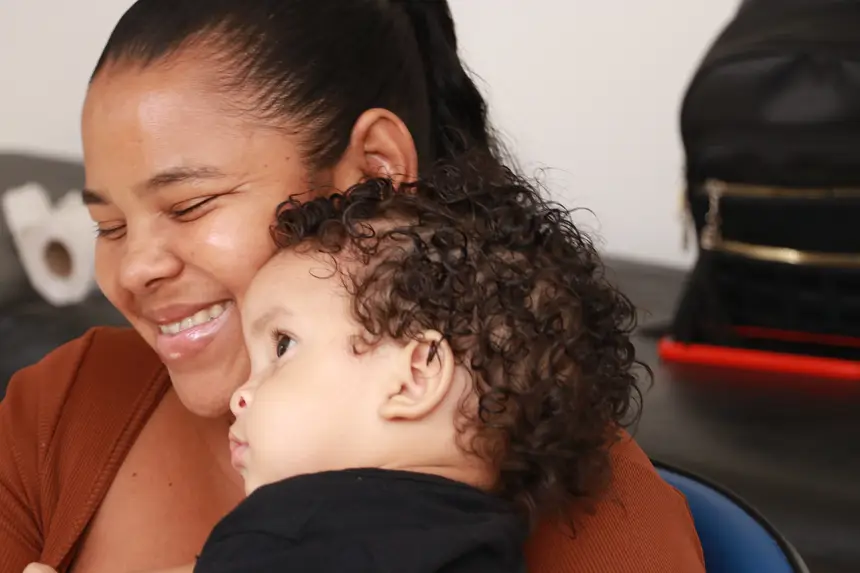
Pará has made significant progress in the treatment of cleft lip and palate. From 2024 to May 2025, approximately 1,104 reconstructive surgeries were performed in public health units of the state, according to data from the State Department of Public Health (Sespa). The work includes not only surgeries but also guidance, awareness-raising, and comprehensive follow-up for patients with this congenital condition, commonly known as "cleft lip."
According to speech therapist Déborah Costa, coordinator of the multiprofessional team of the Reference Service for Clefts and Craniofacial Anomalies at the Santa Casa de Misericórdia do Pará Foundation (FSCMP), cleft lip and palate are among the most common malformations affecting the human face. "In Brazil, it is estimated that one in every 650 children is born with this condition," she states.
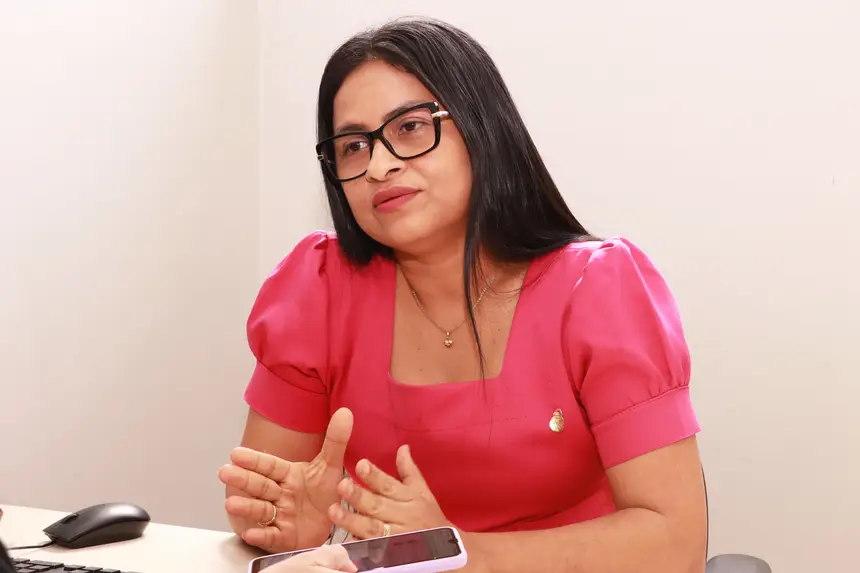
The cleft can vary from a small notch in the lip to a complete separation that affects the palate and the base of the nose. The causes are not yet fully understood, but genetic and environmental factors, such as poor nutrition during pregnancy, alcohol use, tobacco, and medications in the early weeks of gestation, are among the possible contributors.
Treatment involves a series of surgeries, usually starting from the third month of life, depending on the child's health. The correction of the palate, in turn, usually occurs between 12 and 18 months of age.
The speech therapist emphasizes the importance of prevention. "It is essential that women, before becoming pregnant, receive medical follow-up and adopt healthy habits, such as a balanced diet and the use of supplements. Early care can reduce the risks of malformations."

Specialized and multiprofessional care
Since 2018, Santa Casa, in Belém, has been accredited by the Ministry of Health as a State Reference Service for the treatment of cleft lip and palate. The facility offers multiprofessional assistance with speech therapists, nutritionists, psychologists, dentists, pediatricians, and other specialists.
According to Déborah Costa, treatment goes beyond surgery. "Care involves functional and aesthetic rehabilitation, focusing on communication, feeding, breathing, and social integration of the child. Often, follow-up extends into adulthood."
In addition to Santa Casa, the regional hospitals in Santarém, Marabá, and Redenção also perform the procedures, forming a state network of medium and high complexity care. Access to services is made through regulation via municipal health units.
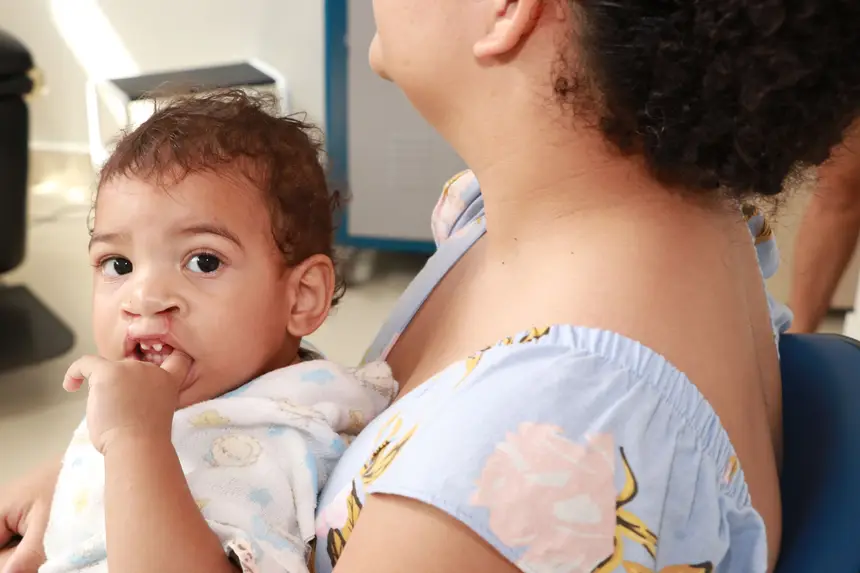
Stories of overcoming
Thayna Santos Agostinho, 20, is the mother of Arthur, 1 year and 2 months old, diagnosed during pregnancy with bilateral cleft palate. The boy was referred from Tailândia to Belém for follow-up and surgery at Santa Casa. "Since the first month, he has been receiving follow-up. The lip surgery was in March, and after that, he has progressed a lot, especially in speech and feeding," she reports.
Adielma Silva, 25, from Barcarena, discovered her son Luiz Eduardo's condition during prenatal care. "He had his first surgery in April, and after that, we saw many improvements. The second surgery will be at 1 year and 3 months. The care is excellent," she states.
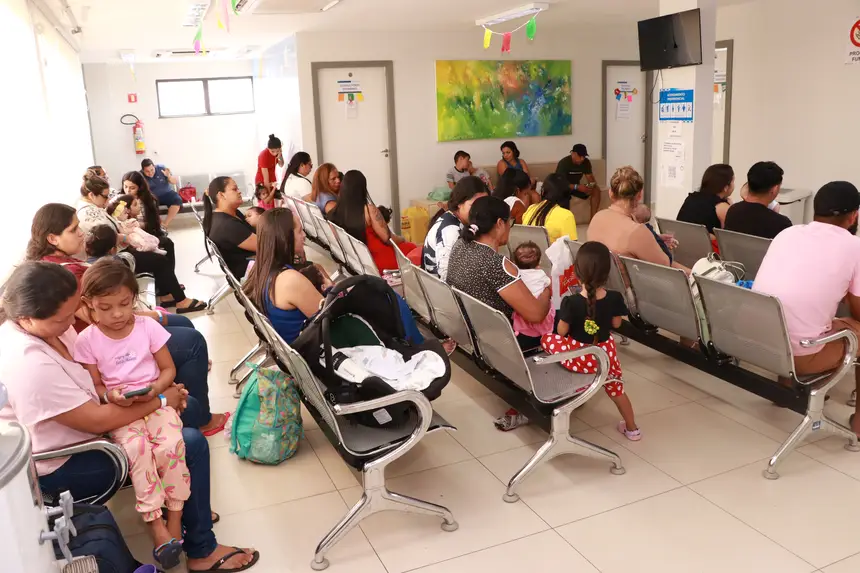
Guaranteed rights
Comprehensive treatment through the Unified Health System (SUS) was reinforced with the sanction of Law 15.133, of 2025, which requires SUS to provide complete care for cleft lip and palate. The new legislation was published in the Official Gazette of the Union on May 7.
Sespa carries out educational actions
In commemoration of the National Awareness Day for Cleft Lip and Palate, celebrated on June 24, the State Department of Public Health of Pará (Sespa) promotes awareness-raising and guidance actions for the population on the subject, in partnership with municipalities and oral health institutions. The activities take place in cities such as Santarém, Marabá, and Belém, focusing on the visibility of the cause, preventive information, and support for families and patients with the condition.
In Belém, Sespa's action will be integrated into the Citizenship Action Viver Outeiro, scheduled for June 28, from 8 am to 12 pm, in partnership with the City Hall of Belém and with the presence of Mayor Igor Normando. On this occasion, an educational booklet on cleft lip and palate will be distributed, containing information on diagnosis, risk factors, and guidelines for surgical treatment and proper follow-up.
In Santarém, the program included a Solemn Session at the City Council at 3 pm, with a motion of recognition for the cause and a speech by councilwoman Bárbara Matos. The moment was attended by health professionals, representatives of civil society, patients, and families. At 6 pm, a awareness blitz was held on the City’s waterfront, in front of the Tourist River Terminal, with the distribution of pamphlets, educational posters, and interactive activities coordinated by the ProSorriso team.
In Marabá, the mobilization took place early in the morning, with the participation of people with clefts, handing out flyers in front of the city shopping mall and a live broadcast on social media, aiming to expand the reach of information.
The coordinator of Oral Health at Sespa, Alessandra Amaral, emphasizes that the campaign aims not only to raise awareness but also to combat prejudice and ensure support for families. "Cleft lip and palate is a condition that can be treated with good results when diagnosed early and followed by a specialized team. The role of public health is to guide, welcome, and ensure access to services with quality and humanization," she stated.
She also reinforces that combating misinformation is one of the priorities. "Many families still have questions about the causes, risks, and available treatments. That’s why this mobilization is so important. It’s a moment of listening, support, and valuing each smile that goes through this overcoming process," she concluded.
Text by Giullianne Dias and Suellen Santos / Ascom Sespa





